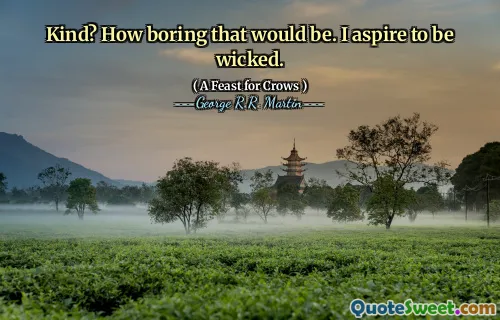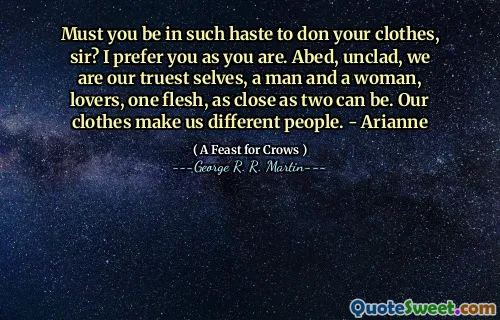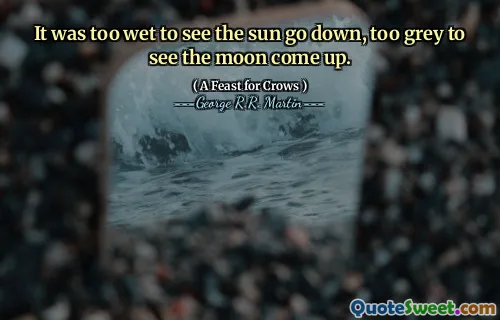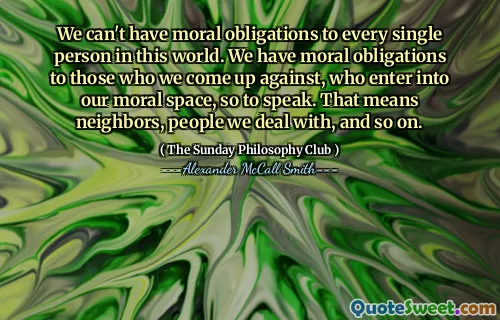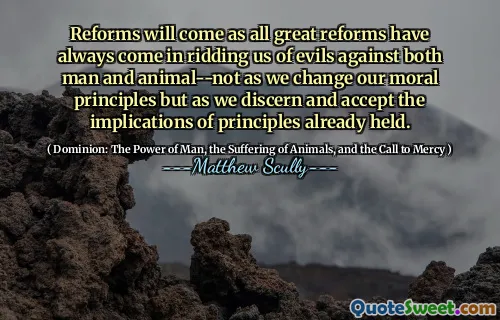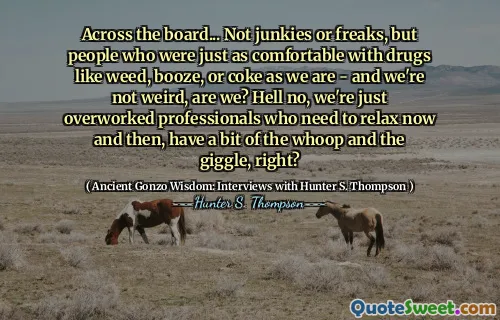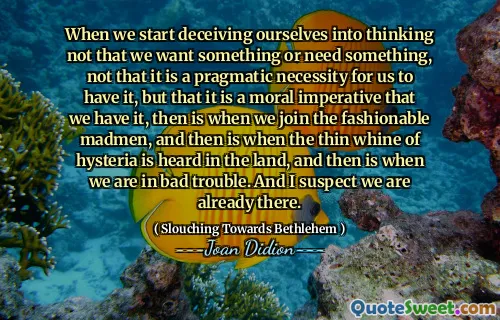
Kind? How boring that would be. I aspire to be wicked.
This quote delves into the intriguing contrast between kindness and wickedness, highlighting a conscious choice to embrace a darker, more rebellious path. It suggests that being kind might be seen as safe or predictable, whereas seeking wickedness introduces excitement, defiance, and a sense of individuality. The speaker seems to value the thrill of challenging norms and indulging in morally ambiguous actions, perhaps viewing moral virtue as mundane or restrictive. This perspective can be understood as a reflection of a desire to break free from societal expectations, to explore the complexities of human morality, and to find identity in defiance. Such a stance also raises questions about the nature of morality itself—whether kindness is truly boring or whether the allure of wickedness is merely a form of escapism. While some might interpret the quote as reckless or condemnatory, others may see it as a commentary on the human desire for excitement and recognition outside conventional standards. It also evokes a sense of rebelliousness and the allure of the forbidden, prompting us to consider whether embracing wickedness is an act of bravery or recklessness. Ultimately, the quote underscores that choices about morality are deeply personal and often influenced by our innate desire for purpose, thrill, or defiance. It challenges us to reflect on what motivates our moral decisions and whether the pursuit of excitement justifies stepping outside societal norms, or if true contentment lies in kindness and integrity. In the realm of literature and character development, such quotes remind us that even villains or anti-heroes often have compelling reasons for their actions, making morality a complex tapestry rather than a simple dichotomy.
